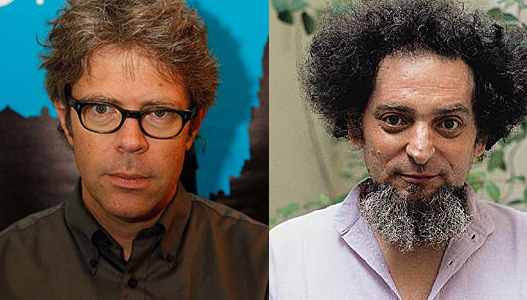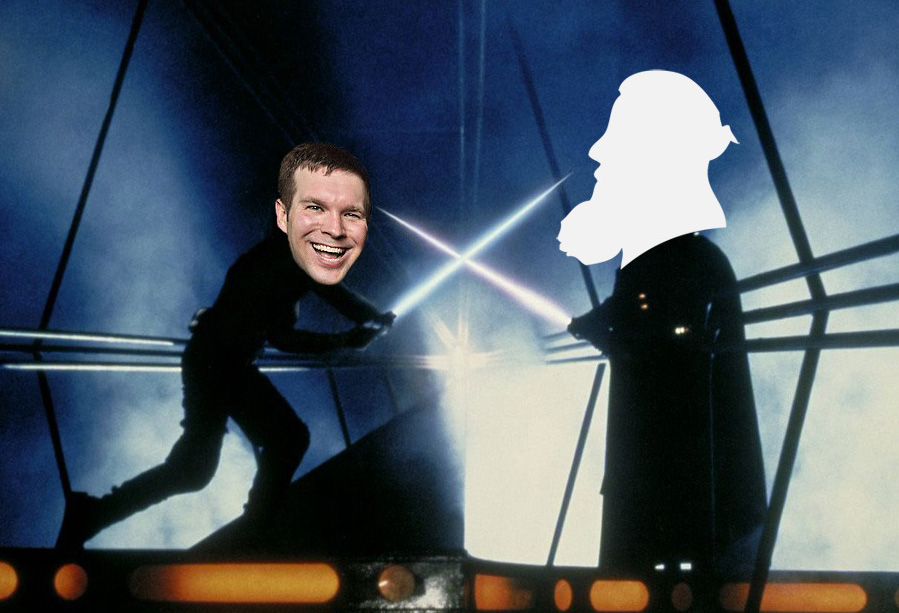Birdwatching with Jonathan Franzen

I was between meetings with my editor and agent, walking down E 12th St. about to enter a cafe for an almond croissant, when I spotted a Columba livia (of the Columbiformes order, colloquially known by pedestrians as a “pigeon”) standing on the sidewalk gazing into the havoc of industry brought upon by humans, the good earth embalmed under slabs of concrete and funk. I always carry my binoculars, a moleskin, and one sharpened No. 2 pencil in my satchel. Did people stare at me as I stared at this fine specimen of urban worry? I could not tell. Peripheral vision, like 20/20, is overrated. Under the lens of my binoculars, past those of my unwittingly hipster glasses, through my cornea into the timeless cave painting of light on my retina, along my optic nerve like some whip of meaning, and into this very large head, I witnessed a stillness—enough to make one dry weep—unknown to our younger generation currently glued to various vapid interfaces with apps on their supposedly “smart” phones. From the ashes of Goethe and Heine, the timelessness of vision’s sad lament of nature could be felt in my bones, and jeans. I needed new pants. This diet was going nowhere.
THIS SEPTEMBER ISSUE: TWELVE REASONS TO CHOOSE HARPER’S
THE BRIEF HISTORY OF HARPER’S CLUB
Six days ago I received an email with the subject: “HARPER’S MAGAZINE RENEWAL.” The line of argumentation the email included was constructed by the magazine’s “Circulation Director.” I never read it, because I believe everything it said: I didn’t need to be persuaded in regards to the absolute necessity of my continued subscription. [1]
The motive that initially made me subscribe to Harper’s was my desire to intellectually engage on a more personal level with a friend from college, Dan. We both agreed that the depth of our homosocial rapports was not adequately profound, and because we enjoyed discussing with one another we eventually came up with the idea of what we jocularly referred to as “Harper’s Club.” [2] Dan’s academic interests were very different than mine, but we both enjoyed challenging various points of view in our pursuit of forming an informed opinion.
The planning of The Club’s meetings became impossible and our friendship never deepened. Regardless of this failure I could not be happier for the epiphenomenal ramifications of our failed initiative. By encouraging me to think about familiar subjects in different ways, “Harper’s Club” regularly challenged me as a thinker. This held true even when I was the solitary member of the Club, and continues to be valid to this day. Every time a new issue arrives in my mailbox I expect to encounter articles that serve this mission. My expectations are pleasantly surpassed consistently.
THOUGHTS ON ADS (ATTN: MIGHT BE FEELINGS!)
The 2012 Realist Sex Novel Kerfuffle (a response to Blake and Stephen, involving also cowboys, Atlas Shrugged, and the Franzen/Marcus debate)
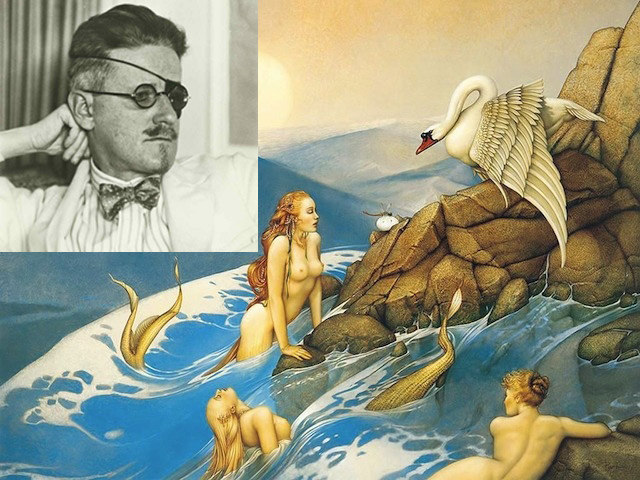
“Ho hum, I profess an interest in these cavorting sea nymphs only inasmuch as I can use them to allegorically comment on the Human Condition.”
Blake has stated, over at Vice, that he doesn’t want to read any more books about straight white people having sex. Stephen has stated, right here, that he is prepared to read many more novels about people fucking. There are substantial differences in these claims that we could pause to examine (“don’t want to read” vs. “am prepared to read”; “straight white people” vs. “people”; “sex” vs. “fucking”), but forgive me if I let those subtleties drop. Because I would rather observe that, if this is the scope of the debate, then it’s akin to one person saying, “I am tired of books about dogs, and no longer want to read more novels about them,” to which someone else replies, “I’m still willing to read some canine fiction.”
Recast in that light, it’s easy to see that neither person is right or wrong. How could they be? It is simply a matter of taste. One man has gotten tired of all those dog books. The other man is not yet so tired. The literary market, no doubt, will cater to them both. And perhaps, over time, demand for dog-free writing will grow, and drown out the pro-dog side, and the market will shift and, for some time, it will be hard to come by a copy of Marley and Me. (Here it might be helpful to replace “dogs” with some other thing, like vampires, or zombies, or alt-lit.) But through it all, one’s preference is perfectly free to steadfastly remain one’s preference. What’s not at stake, in other words, is the right to like whatever you like. The books you read say something about the person you are, and you should be proud of whoever you are! Display your chosen book(s) on the train to signal your affiliation with one of this nation’s many vibrant subcultures. Who knows? Another member of that subculture may spot you, in which case you can exchange nods, smiles, kisses! What’s more, today, thanks to the Internet, you can even make a list of the books that you like, then talk with fellow fans! (There are even web-sites devoted to this!)
Let’s try thinking instead about this argument in terms of genre. A new cowboy movie has comes out, and you and all of your friends go see it. Afterward, you’re wondering whether it’s any good or not …
The Foppishness of Praise-By-Attack in Jonathan Franzen’s Farther Away
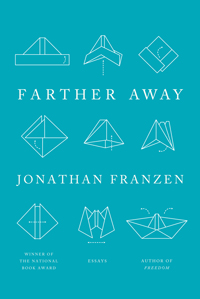 Farther Away
Farther Away
Eustace Chisholm and the Works, a novel by Purdy published in 1967, is, according to Franzen, “so good that almost any novel you read immediately after it will seem at least a little posturing, or dishonest, or self-admiring, in comparison.” Franzen goes on to say that Eustace Chisholm is better than the sentimental and rhetorically manipulative Catcher in the Rye, superior to the works of Richard Yates, which are haunted by self-pity, and more legit than Saul Bellow, who seems “wordy and academic and show-offy if you read him directly after Eustace Chisholm.” While dissing Purdy’s contemporaries might be fun, it doesn’t tell us much about Eustace Chisholm, nor does it let the novel succeed on its own merits.
September 14th, 2012 / 12:00 pm
Do As Franzen Does. Do What You Like
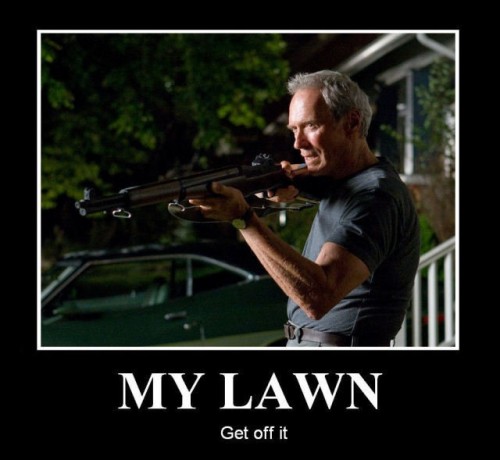
In some ways, we’ve brought this on ourselves; it is a slippery slope. First you wonder what Angelina Jolie had for breakfast because she was so great in that one movie or whatever and then you’re buying cereal and thinking, “Does Oprah eat Raisin Bran?” Eventually, you even start to give a damn about what famous writers think about the weather or, say, social networking, and someone like Jonathan Franzen revels in his dislike of Twitter and other means of social networking from his Important Writer perch and we respond because if Franzen hates Twitter does he hate us too? The angst is unbearable and yet it’s all sort of inevitable.
Franzen’s A Great American Writer and all but I don’t give a much of a damn about his opinions on anything (see: Edith Wharton obvi). Or I do. Is it really surprising that Franzen doesn’t care for Facebook or Twitter? His overall comportment does not suggest an affinity for the levity of social networking. I can’t really say I love Facebook, myself. It has become increasingly hard to make sense of the interface and I keep getting invited to parties and readings in Bali and Temecula and I don’t live in those places so the experience is, at best, fragmented. At the same time, I don’t need to proselytize my dislike unless I’m on Twitter. Who cares? My opinion doesn’t matter nor does Franzen’s, though he is Very Fancy so in the calculus of mattering, his irrelevant opinion is less irrelevant than mine. Math.
J. Franz talking smack about Twitter, though, thems fighting words.
ToBS R1: hating on Jonathan Franzen vs. hating on Jonathan Safran Foer
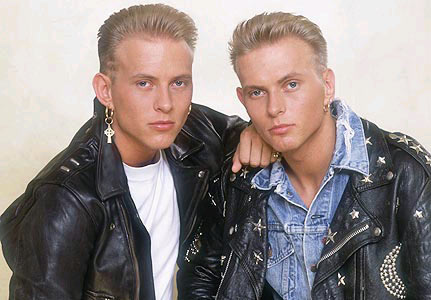
[Matchup #16 in Tournament of Bookshit]
You meet a woman and wake up to her bookshelf:
• 30-50 copies of Elle
• 1984
• [something by Chuck Klosterman]
• Everything Is Illuminated
You say, “Okay,” to her while she sleeps. READ MORE >
Dogs vs. Birds
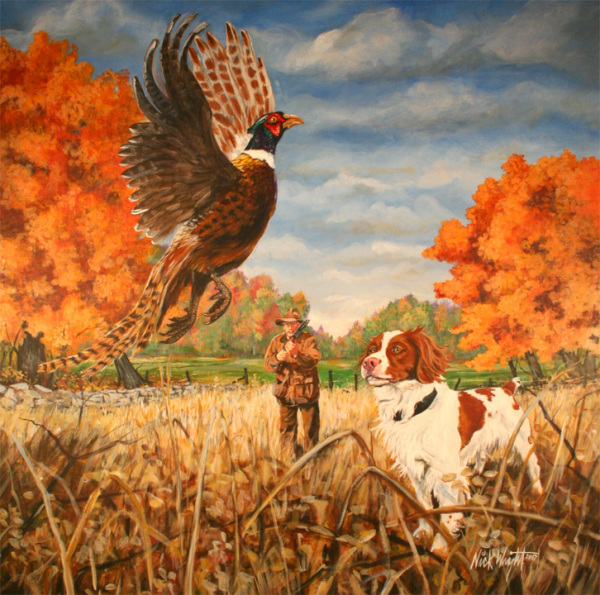 I like dogs. I’m what you might call a “dog person.” My dog, who my parents purchased somewhere in central Indiana in November 1999, is not only a great friend, but an important influence on my writing and art. Today, she sits approximately fifteen feet behind me staring out the window at the cold, gray earth. Did I mention she likes HTMLGIANT.
I like dogs. I’m what you might call a “dog person.” My dog, who my parents purchased somewhere in central Indiana in November 1999, is not only a great friend, but an important influence on my writing and art. Today, she sits approximately fifteen feet behind me staring out the window at the cold, gray earth. Did I mention she likes HTMLGIANT.
When I was growing up, a strong percentage of my favorite books were centered around dogs. There was Go, Dog. Go!—the second book I ever read. Then there were Marjorie Flack’s Angus books about a mischievous Scottish Terrier, not unlike the more popular The Poky Little Puppy, which as of 2001, was the single all-time best-selling hardcover children’s book in the country, selling nearly 15 million copies since its publication in 1942, according to Publishers Weekly. As I grew older still, I read Shiloh and, my favorite childhood novel, Where the Red Fern Grows. There was even a book narrated by a Pointer, read aloud in some public school setting, which has left an undying impression on me, years later. Needless to say, the dog books were a big part of my childhood.
Somewhere along the line, though, a shift occurred.
On Listening to Franzen’s Freedom
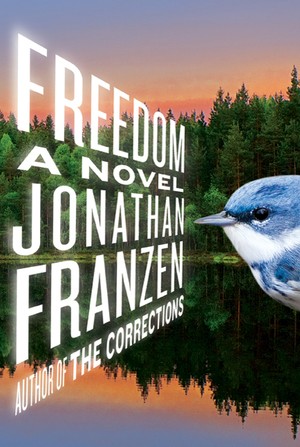 “To me, the point of a novel is to take you to a still place. You can multitask with a lot of things, but you can’t really multitask reading a book. You’re either reading a book or you’re not.” – Jonathan Franzen, “Jonathan Franzen on Author Videos & the Novel”
“To me, the point of a novel is to take you to a still place. You can multitask with a lot of things, but you can’t really multitask reading a book. You’re either reading a book or you’re not.” – Jonathan Franzen, “Jonathan Franzen on Author Videos & the Novel”
In August of last year, a publicist at Macmillan sent a 19-disc audiobook of Freedom by Jonathan Franzen to the newspaper office where I work. She included a handwritten note on Macmillan stationary, “I hope you’ll consider revisiting the pleasures of audiobook with FREEDOM.”
“Audiobooks are great when surfing the internet. You can surf; play games, chat, Skype … There are lots of other ways you can multitask with Audiobooks.” – Jia Hunter, “Multitask Away With Audiobooks”
“The review will be, like, about folding laundry while listening to Freedom, or taking a shit while listening to Freedom, or being on Facebook while listening to Freedom,” I said to my editor. He nodded, mumbled, “Clever,” and made a note in his daily planner.
My wife rolled her eyes when I told her about the review. “Always with this clever shit,” she said.
“And how are you going to take notes when you’re wiping your ass? And how are you going to quote from an audiobook if you’re not taking any notes?”
myeditor: yeah
no quotes is fine i guess
you’re going to slam him right?
me: that’s the idea
February 22nd, 2011 / 1:17 pm


